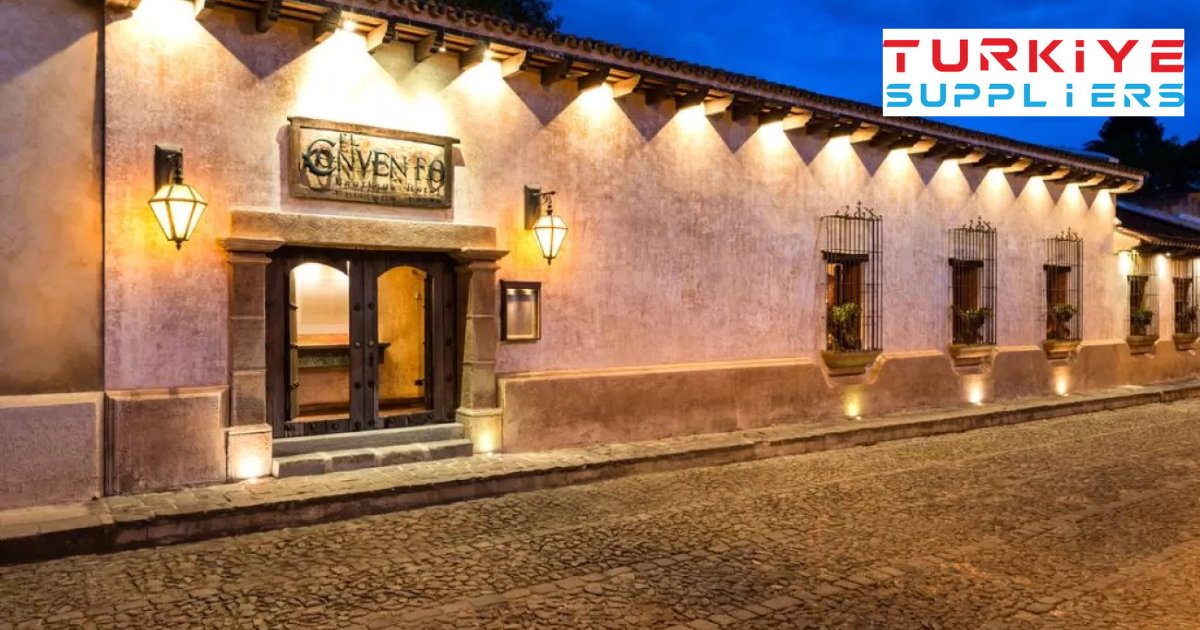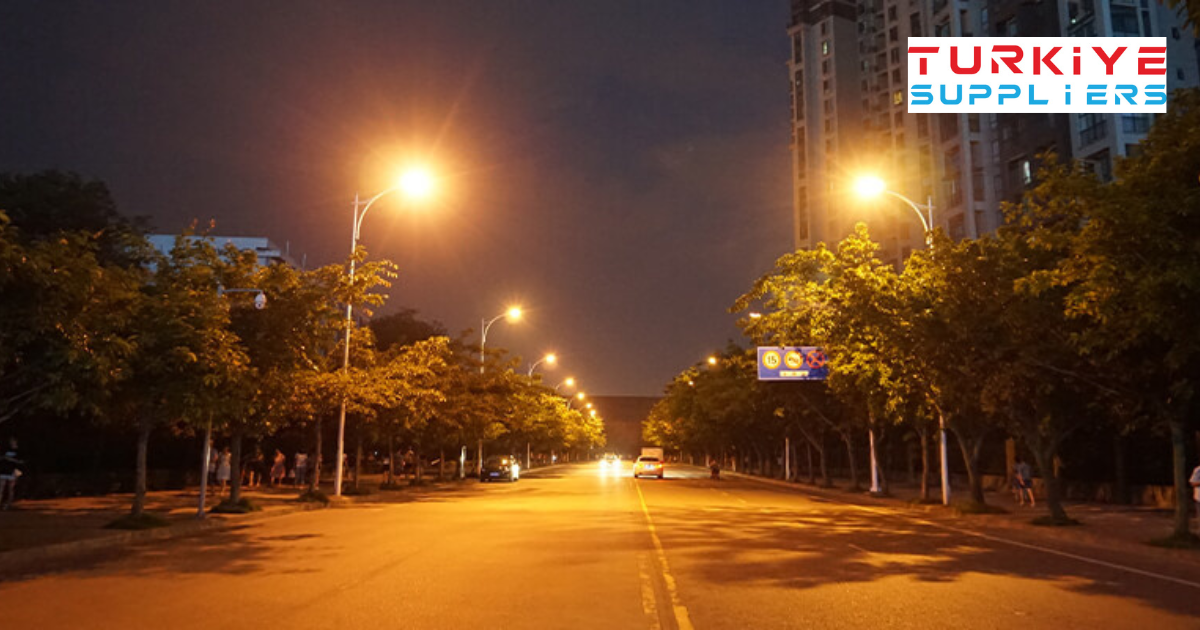Street lighting is an essential component of urban infrastructure, directly impacting safety, economy, and community development. In African countries like Ghana, Senegal, Cameroon, Nigeria, Angola, Zimbabwe, and Uganda, there’s a growing focus on street light projects and advanced convent light street solutions to enhance security, improve night visibility, and support economic activities. This article examines the significance of street lighting in these regions, highlighting how innovative solutions are transforming urban landscapes and contributing to sustainable development.
Why Street Lighting is Essential for African Cities
Improving Public Safety Through Effective Street Lighting
Public safety is one of the primary reasons street lighting projects are prioritized in urban areas across Africa.
- Reduction in Crime Rates: Well-lit streets deter crime, as criminals are less likely to target areas where they can easily be seen. In bustling cities like Lagos, Nigeria, and Accra, Ghana, effective street lighting has proven to decrease crime and enhance safety for residents and businesses.
- Road Safety for Drivers and Pedestrians: In densely populated areas, proper lighting improves visibility for drivers and pedestrians alike, reducing the number of accidents and encouraging safer driving habits. With heavy nighttime traffic in cities like Kampala, Uganda, and Douala, Cameroon, improved street lighting helps in minimizing accidents.
Supporting Nighttime Economic Activities
Street lights encourage businesses to operate longer, thereby boosting the local economy.
- Increased Business Hours: In well-lit streets, shops, restaurants, and markets can remain open during evening hours, providing convenience and economic growth. This is particularly beneficial in regions with thriving street markets, like those in Dakar, Senegal.
- Employment Opportunities: The installation and maintenance of street lights create job opportunities, allowing local economies to benefit from employment generated by these projects.

Why Street Lighting is Essential for African Cities
you can read more about: Electrical switches: Electrical switches from turkey
Convent Light Street Systems: A Modern Solution for Sustainable Lighting
What is Convent Light Street Technology?
Convent light street systems use advanced, energy-efficient technologies, including solar panels and LED lights, which reduce energy consumption and maintenance costs.
- Energy-Efficient Design: Convent light street solutions are built to minimize energy use through LED lighting, which consumes far less power than traditional bulbs and requires less frequent replacement.
- Sustainable Solar Power: Many convent light street systems are equipped with solar panels, providing an eco-friendly energy source that can operate independently of the national grid. This is especially beneficial in regions with limited access to consistent electricity, such as remote areas in Uganda and Zimbabwe.
Benefits of Solar-Powered Street Lights in African Cities
In many African cities with abundant sunlight, solar-powered street lights offer a reliable and eco-friendly solution.
- Reduced Dependency on National Grids: Solar street lights decrease reliance on the national electricity grid, ensuring uninterrupted lighting even during power outages.
- Lower Maintenance Costs: Solar and LED street lights have longer lifespans and require less maintenance, providing municipalities in cities like Luanda, Angola, and Harare, Zimbabwe, with long-term savings.
The Impact of Street Light Initiatives in Specific African Countries
Ghana: Convent Light Street Projects in Accra and Kumasi
In Ghana, cities like Accra and Kumasi have launched several convent light street projects to improve safety and boost local economies.
- Solar Street Lighting Projects: Ghana has implemented solar-powered street lights in various regions, particularly in high-traffic and commercial areas, reducing costs while providing consistent illumination.
- Public-Private Partnerships: Collaborations with private companies are helping to fund and manage large-scale street light projects, supporting infrastructure growth throughout the country.
Senegal: Enhancing Public Safety in Dakar
Senegal’s capital, Dakar, is utilizing modern street lighting solutions to reduce crime and create safer neighborhoods.
- Community-Based Lighting Initiatives: Involving local communities in the planning and maintenance of street lighting fosters a sense of ownership and responsibility among residents.
- Energy-Efficient Solutions: Dakar has adopted LED and solar-powered street lights, making the city safer while conserving energy.
Cameroon: Upgrading Infrastructure in Douala and Yaoundé
Cameroon’s primary cities, Douala and Yaoundé, are prioritizing street lighting upgrades to accommodate rapid urbanization and improve safety.
- Government-Driven Projects: The Cameroonian government has initiated several street lighting projects to meet the demands of growing urban populations.
- Solar and LED Integration: Many new installations combine LED and solar technology, creating cost-effective, sustainable lighting solutions.
Nigeria: Street Light Solutions in Lagos and Abuja
In Nigeria, cities like Lagos and Abuja are implementing convent light street systems to address security concerns and enhance urban living.
- Improving Public Safety: The Lagos State government has undertaken projects to install street lights in high-crime areas, improving security and encouraging community activities.
- Boosting Economic Activity: Well-lit streets enable businesses to operate during the night, contributing to the city’s economic growth and providing safer public spaces.
you can read more about: power tools organizer: power tools made in turkey
Angola: Developing Luanda with Convent Light Street Systems
In Luanda, Angola’s capital, the government has invested in convent light street solutions to enhance the city’s infrastructure.
- Supporting Smart City Goals: Luanda aims to become a smart city, with energy-efficient street lighting playing a central role in this transformation.
- Employment Generation: Street light projects in Angola also create jobs, from installation to maintenance, benefiting the local economy.
Zimbabwe: Modernizing Harare’s Infrastructure with Sustainable Lighting
In Harare, Zimbabwe, convent light street projects are being implemented to modernize the city and improve public safety.
- Focus on Solar Power: The government has installed solar-powered street lights to reduce grid dependency and ensure consistent illumination.
- Community Involvement: Residents actively participate in the maintenance of street lighting systems, promoting a sense of community and accountability.
Uganda: Sustainable Lighting Solutions in Kampala
Kampala, Uganda, is investing in sustainable street lighting to support urban growth and environmental goals.
- LED and Solar Integration: Kampala is utilizing solar and LED technology for street lights to enhance public safety while reducing energy costs.
- Environmental Initiatives: Kampala’s commitment to green policies makes solar-powered street lights an ideal fit for the city’s sustainability efforts.

The Impact of Street Light Initiatives in Specific African Countries
Innovative Features of Convent Light Street Systems
Motion-Sensing Technology for Energy Conservation
Motion sensors in street lights reduce energy use by adjusting brightness based on the presence of people or vehicles.
- Automatic Dimming: Motion-sensing street lights dim when there’s no movement, saving energy during quieter hours.
- Enhanced Security: These lights brighten when activity is detected, providing increased visibility and security when needed.
Remote Monitoring for Efficient Maintenance
Remote monitoring systems in convent light street solutions allow for real-time tracking of light performance.
- Proactive Maintenance: Municipalities can address issues like outages quickly, reducing the need for frequent manual inspections.
- Cost Efficiency: Automated monitoring minimizes maintenance costs by providing accurate performance data, enabling timely repairs.
you can read more about: electrical accessories: electrical accessories from turkey
Economic and Environmental Benefits of Street Lighting in Africa
Boosting Tourism and Local Businesses
Well-lit cities are more attractive to tourists and businesses, encouraging economic growth.
- Increased Tourism: Tourists feel safer exploring well-lit areas, increasing visitor engagement in cities like Accra, Dakar, and Lagos.
- Local Business Growth: Street lights support businesses by extending operating hours and encouraging customers to stay out later, boosting nighttime commerce.
Environmental Advantages of Energy-Efficient Lighting
Sustainable street lighting solutions, such as solar-powered and LED lights, help reduce environmental impact.
- Reduced Carbon Emissions: Solar-powered lights lower greenhouse gas emissions, contributing to climate change initiatives across Africa.
- Energy Conservation: LED lights consume less power, providing an eco-friendly alternative that benefits African cities committed to green development.
Street lighting is more than just an infrastructure upgrade in African cities like Ghana, Senegal, Cameroon, Nigeria, Angola, Zimbabwe, and Uganda—it’s a transformative tool that enhances safety, supports economic growth, and promotes sustainable urban development. With the adoption of convent light street solutions, including energy-efficient LED and solar-powered lights, these countries are taking steps toward safer, greener, and more vibrant communities. As technology and investment in street lighting continue to advance, African cities will benefit from reduced energy costs, enhanced public safety, and improved quality of life, ensuring a brighter future for urban centers across the continent.
